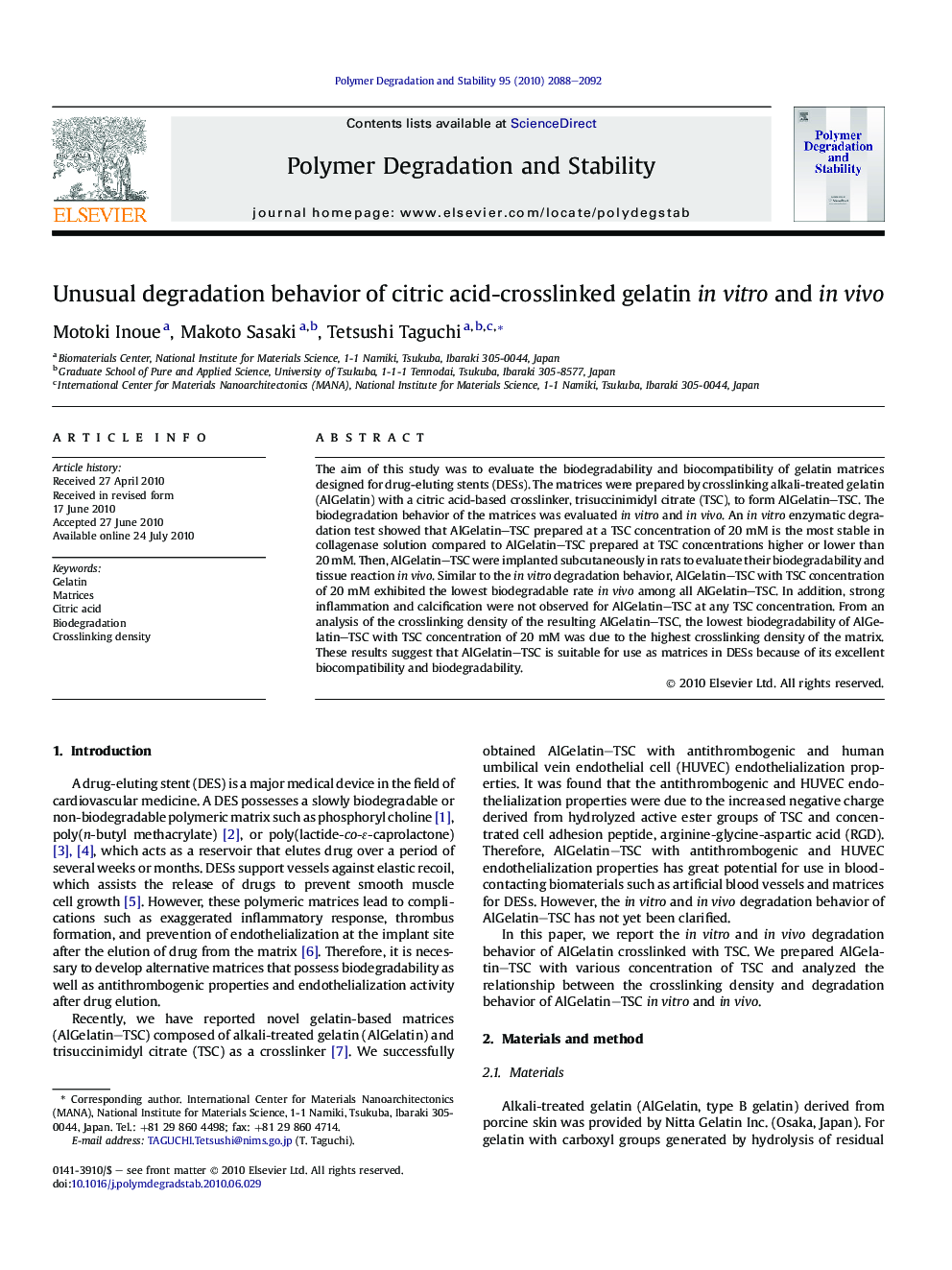| Article ID | Journal | Published Year | Pages | File Type |
|---|---|---|---|---|
| 5203796 | Polymer Degradation and Stability | 2010 | 5 Pages |
Abstract
The aim of this study was to evaluate the biodegradability and biocompatibility of gelatin matrices designed for drug-eluting stents (DESs). The matrices were prepared by crosslinking alkali-treated gelatin (AlGelatin) with a citric acid-based crosslinker, trisuccinimidyl citrate (TSC), to form AlGelatin-TSC. The biodegradation behavior of the matrices was evaluated in vitro and in vivo. An in vitro enzymatic degradation test showed that AlGelatin-TSC prepared at a TSC concentration of 20Â mM is the most stable in collagenase solution compared to AlGelatin-TSC prepared at TSC concentrations higher or lower than 20Â mM. Then, AlGelatin-TSC were implanted subcutaneously in rats to evaluate their biodegradability and tissue reaction in vivo. Similar to the in vitro degradation behavior, AlGelatin-TSC with TSC concentration of 20Â mM exhibited the lowest biodegradable rate in vivo among all AlGelatin-TSC. In addition, strong inflammation and calcification were not observed for AlGelatin-TSC at any TSC concentration. From an analysis of the crosslinking density of the resulting AlGelatin-TSC, the lowest biodegradability of AlGelatin-TSC with TSC concentration of 20Â mM was due to the highest crosslinking density of the matrix. These results suggest that AlGelatin-TSC is suitable for use as matrices in DESs because of its excellent biocompatibility and biodegradability.
Related Topics
Physical Sciences and Engineering
Chemistry
Organic Chemistry
Authors
Motoki Inoue, Makoto Sasaki, Tetsushi Taguchi,
